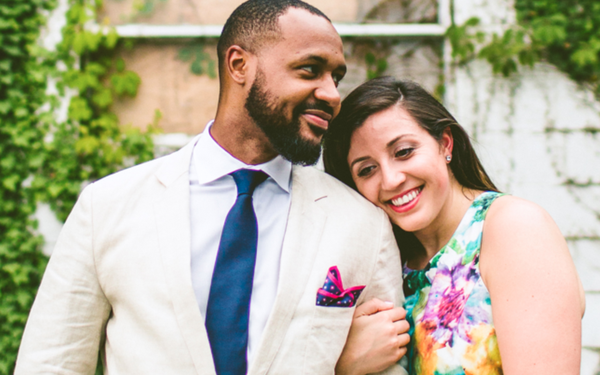media
COVID-Era Weddings: Weekdays, Minimonies And Sequels
- by Sarah Mahoney @mahoney_sarah, December 9, 2020

Brides-to-be have borne an especially big burden during the pandemic. But it turns out that nothing sparks creativity and optimism like young love that wants to celebrate. Dhanusha Sivajee, chief marketing officer of the bridal media and wedding planning company The Knot, tells Marketing Daily how months of disruption continue to stretch the art of getting hitched.
Marketing Daily: Let's start with the size of the market. How much has the wedding business shrunk this year?
Dhanusha Sivajee: That's been surprising to us. We've seen a decline in the number of weddings people are having.
But people were pushing health and safety, doing what we're calling minimonies. They were observing state and local restrictions and having small events, with the idea that they'd push the bigger celebration off. They're calling those wedding sequels.
advertisement
advertisement
Our surveys say only 5% of people canceled their weddings, overall. Most just pushed them out.
So we think we'll see a big recovery in the second half of next year, and a lot of pent-up demand.
Marketing Daily: How big is the market, typically?
Sivajee: On average, there are about 2 million weddings a year, costing an average of $35,000, with roughly 130 guests.
Marketing Daily: When people did go ahead and have weddings, what was different?
Sivajee: So much. Plexiglass between guests. Plated meals instead of buffets. Entertainment for guests, but no dance floors. People reimagined events so guests didn't move around as much.
Marketing Daily: How are the vendors coping?
Sivajee: We've really seen what the industry is made of. They've come together to support each other and offered so many things in a virtual fashion -- like 3D tours of venues, for example, and virtual try-ons. But as you can imagine, with somewhere between 300,000 and 400,000 vendors, some are really struggling with cash flow.
Some categories are less affected. People are buying wedding dresses and hiring photographers, even for very small backyard weddings.
Marketing Daily: What would you say the typical mindset is for people planning weddings? There have been some gruesome cases of people being careless, resulting in multiple deaths.
Sivajee: Yes, that's true. We've had a 24-hour hotline with people calling in. Beyond being very health and safety-focused, we're impressed with how calm and rational people are as they plan.
And one silver lining is that we are seeing them focus on the basics. It's really about spending time with family and friends. They're thinking about what's important and the vows that they're making.
Marketing Daily: I live in Maine, where a wedding recently caused multiple deaths, and there have been some big violations in New York City, as well. What impact has the bad wedding publicity had?
Sivajee: Our surveys keep finding that health and safety is the number-one thing. That's not just about the wedding itself, but all the planning leading up to it. People are still falling in love and getting married, but common sense prevails.
And people seem to want to take care of their loved ones. And so many are looking forward to vaccines and a time when they can do the wedding celebration they want to.
Marketing Daily: What changes do you think will be most long-lasting?
Sivajee: Weekday weddings. With pent-up demand, it's going to be the only way people can pull them off -- and then it will continue because of better prices.
What's important in a wedding is sharing your love and having all your favorite people together in one place. And so this notion of needing to stress about exact details -- this color or that venue -- will fade a bit.




